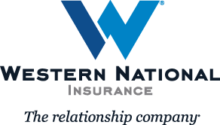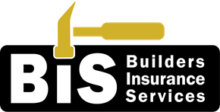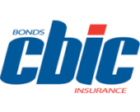Business Insurance
Everyday, businesses have unexpected issues that cause them financial trouble. Unfortunately, no matter how hard you try to prevent them, they will always find a way to still happen. That is where business insurance comes into play. Business insurance protects your business from the financial hardships associated with various risks and liabilities. Things like property damage, liability claims, natural disasters and theft are all things that could happen to a business. Without business insurance you are required to pay out of pocket for these expenses. If you're like many businesses, you don't have millions of dollars in the bank to cover these losses. That is why you need business insurance. Let's find out how it works and what kind of different coverages there are.
What is the Purpose of Business Insurance?
The purpose of business insurance is to provide your business aid after it experiences a loss. A loss is defined as "the damages one suffers due to an insurable event". Oftentimes this aid comes in the form of paying to repair or replace things, or legal defense costs if you are in a lawsuit.
Business insurance is designed to transfer the risk of your business to someone else. In this case, that someone else is the insurance carrier. You are agreeing to pay the premium and they are agreeing to provide coverage when you need it. The business insurance policy carefully outlines exactly what is covered, who is covered, and how much they are covered for.
What is the Process of Obtaining Business Insurance?
When you reach out to an agency inquiring about obtaining insurance, it will first start with a lot of questions. The agent will need to collect some preliminary information in order to get an idea of what your business is and what the day to day operations look like. This will give them an idea of the types of risks associated and what kind of coverage you will need.
Next, using the information that you provided, the agent will start quoting your business. The insurance carriers have online quoting platforms that allows agents to input information and receive a quote, sometimes within minutes. Independent insurance agents are able to quote between different carriers. This is why it is a good idea to go through an independent agent to obtain the most affordable rate while still getting the right coverage.
Once the agent has gotten different business insurance quotes, you will meet with them to go over the options. Finally, you will pick which policy you think meets your coverage needs, and your new business insurance policy will be issued by the agent.
What Are Some Types of Losses?
Depending on your type of business, there could be a wide range of losses you are exposed to. Let's consider a contractor who develops land and pours foundations for houses. Let's assume they have a home office where they store tools, trucks and equipment. In addition, they have 9 trucks, a dump truck, four excavators, and two trailers. This company is at risk for damage to their building, their vehicles, and equipment. Furthermore, the work itself poses a high risk because of the heavy equipment and nature of the work. Lastly, their risk for issues after the work is completed is higher than other businesses. If they do a poor job pouring the foundation to a house and a bunch of other issues crop up over the years, the contractor could be found liable for it.
Let's take a look at some common types of losses that companies encounter.
Lawsuits
Lawsuits are one of the most common types of losses that a business may encounter. Business insurance will cover the defense costs associated with litigation. Lawsuits can come from many different people. Clients, other businesses, and even your own employees.
Auto Accidents
Car accidents are extremely common. If you don't have auto coverage you have to pay out of pocket for the expenses. With the increase in vehicle prices, supply chain issues, and advanced vehicle technology it is more expensive than ever to repair a car after an accident. Business insurance will cover these damages so you don't have to (except for your deductible).
Loss of Income
This is the term used when an event happens that causes your business to either shut down temporarily or have some sort of inconvenience that results in loss of income. An example would be an office flooding and they have to close down for a week to fix it. That income that is lost for the week is covered under a business insurance policy.
Employee Injuries
Employees getting hurt on the job is a common loss. Washington State is one of the four monopolistic states. This means that you have to obtain Worker's Compensation through the state, and third party coverage is not available. In other states you can obtain Worker's Compensation coverage just like any other form of business insurance.
Theft
You can insure your property against theft. Theft can cripple a business if their tools, vehicles, and equipment are stolen. A business insurance policy will protect you from financial losses arising out of theft.
Vandalism
Imagine you own a retail store on the main street through town. One night someone throws a brick through the front window, shattering the glass. You buy plywood and nails to board up the window until you can get it repaired. The repair bill is $3200, plus the $200 you spent on the plywood. You don't have business insurance and you have to cough up $3400 to fix your window. With business insurance you only pay your deductible, say $500, and your window is replaced. Furthermore, you are reimbursed your $200 for taking measures to prevent further damage (installing the plywood).
Our Partner Companies:

What Types of Business Insurance Coverages Are There?
Business insurance is an overarching term for many different kinds of coverage. Each one has its own specific purpose. The coverage your business needs depends on the type, size, location, and daily operations. For business insurance, there is no "one-size-fits-all"; it needs to be customized for each business. Your agent will ask you questions to determine what kind of coverage you need for your business. Here are some common types of coverages that businesses carry:
Liability
- Covers the insured for liabilities they may encounter such as:
- bodily injury (someone getting hurt)
- property damage (employee accidentally damages work site)
- personal and advertising injury (hurting someone’s feelings (no physical injury) libel, slander, etc.)
- products liability (protects you from injuries or claims arising from your manufactured products)
- completed operations (issues arising from your completed job sites)
- legal defense (covers court costs)
Professional Liability
- Protects professionals that provide clients a service or give professional advice, such as a financial advisor. Covers court costs if people claim you were at fault for an issue.
Property
- Covers your business location for damages.
Auto
- Covers damages to your autos while driving for business purposes. There are different coverage options depending on your auto use – who’s driving, what they’re driving, how they're using the auto and what they’re covered for.
Worker's Compensation
- If employees get hurt or sick on the job, workers comp pays for it. It is required in most states that have employees. Washington is one of 4 monopolistic states, meaning that you have to go through the state to get workers compensation insurance.
Commercial Umbrella
- An overarching coverage that is good for filling holes in insurance policies. Raises the limits of coverage.
Bonds
- Many contractors are required to have certain types of bonds depending on what kind of work they do. A bond is a contract between three parties that guarantees something. The three parties are the principal, who is the one who needs the bond. The obligee, who is requesting the bond. And the surety, the company who issues the bond.
Inland Marine
- Covers property in transit. This is the type of coverage you would have for an excavator or a tractor that you take to and from a job site.
Business Personal Property
- This is the stuff that your business owns (not permanently installed equipment) like tools, furniture, computers, etc. If you turned the building upside down, what would fall out? That stuff that falls out would be the business personal property.
Personal Property of Others
- This is other peoples stuff that you have in your care, custody or control. An example would be if you are borrowing a tractor from another company, that tractor would be personal property of others.
Business Income
- If your business has a covered loss and is required to temporarily shut down, business income will replace your expected income for that timeframe. This is to help you stay current on your bills, payroll, etc. and not have to pay out of pocket for regular, ongoing expenses during a shut down.
Cyber
- Gives you coverage if you have a cyber breach.
Flood
- Gives you coverage if there is a flood.
What Influences Insurance Premiums?
There are many factors that go into curating a business insurance premium. When you are obtaining a new policy, your agent will ask you questions about your business. Using the answers to these questions the carrier will determine if your business is a fit for their company. They will also use these answers to determine your coverage and premium.
Here is a list of a few common things that insurance companies use to base their rates on:
- the number of employees at your business
- the amount of annual payroll
- the type of business you have (ex: a plumbing company)
- the extent of your business operations (ex: what kind of plumbing)
- the location of your business
- the number of locations you have
- your claims history (usually 3-5 year history is used)
- number of autos
- the type of autos (passenger, commercial, service, retail, trailer, light/heavy/medium weight, year)
- the distance (or radius) you drive in an average day
- lastly, the amount of coverage you need
These are the main things that insurance carriers use to get an understanding of your business. They are determining your average daily operations in order to assess the amount of risk associated with it. Once they determine the risk they set the premium to reflect it. The higher the risk, the higher the premium and vice versa.
What is a BOP?
One common type of business insurance that small business owners get is called a Business Owner's Policy, or BOP for short. What makes a BOP a good choice for a small business is that it combines property and liability into one policy. This allows for simplicity and minimizes the risk of having coverage gaps. BOPs are very customizable, offering a variety of endorsements you can add to the policy for more tailored and robust coverage.
Each carrier has its own limitations as far as to who qualifies for a BOP. The size of your business determines your eligibility. For larger companies, a Commercial Package is another option, but is more complex than a BOP. Consequently, they are usually more expensive than a BOP because there is more risk involved due to the increased exposure of having more vehicles, more employees, etc. For the majority of small businesses looking into getting business insurance, a BOP is a great option.
All businesses are unique, so it is important to find insurance that fits your needs. One of our insurance professionals can help assess what your needs are and help design a business insurance plan that will protect you at an affordable cost, without compromising coverage. Contact us today for help with your business insurance!
Informational statements regarding insurance coverage are for general description purposes only. These statements do not amend, modify or supplement any insurance policy. Consult the actual policy or your agent for details regarding terms, conditions, coverage, exclusions, products, services and programs which may be available to you. Your eligibility for particular products and services is subject to the final determination of underwriting qualifications and acceptance by the insurance underwriting company providing such products or services. This website does not make any representations that coverage does or does not exist for any particular claim or loss, or type of claim or loss, under any policy. Whether coverage exists or does not exist for any particular claim or loss under any policy depends on the facts and circumstances involved in the claim or loss and all applicable policy wording.

















































